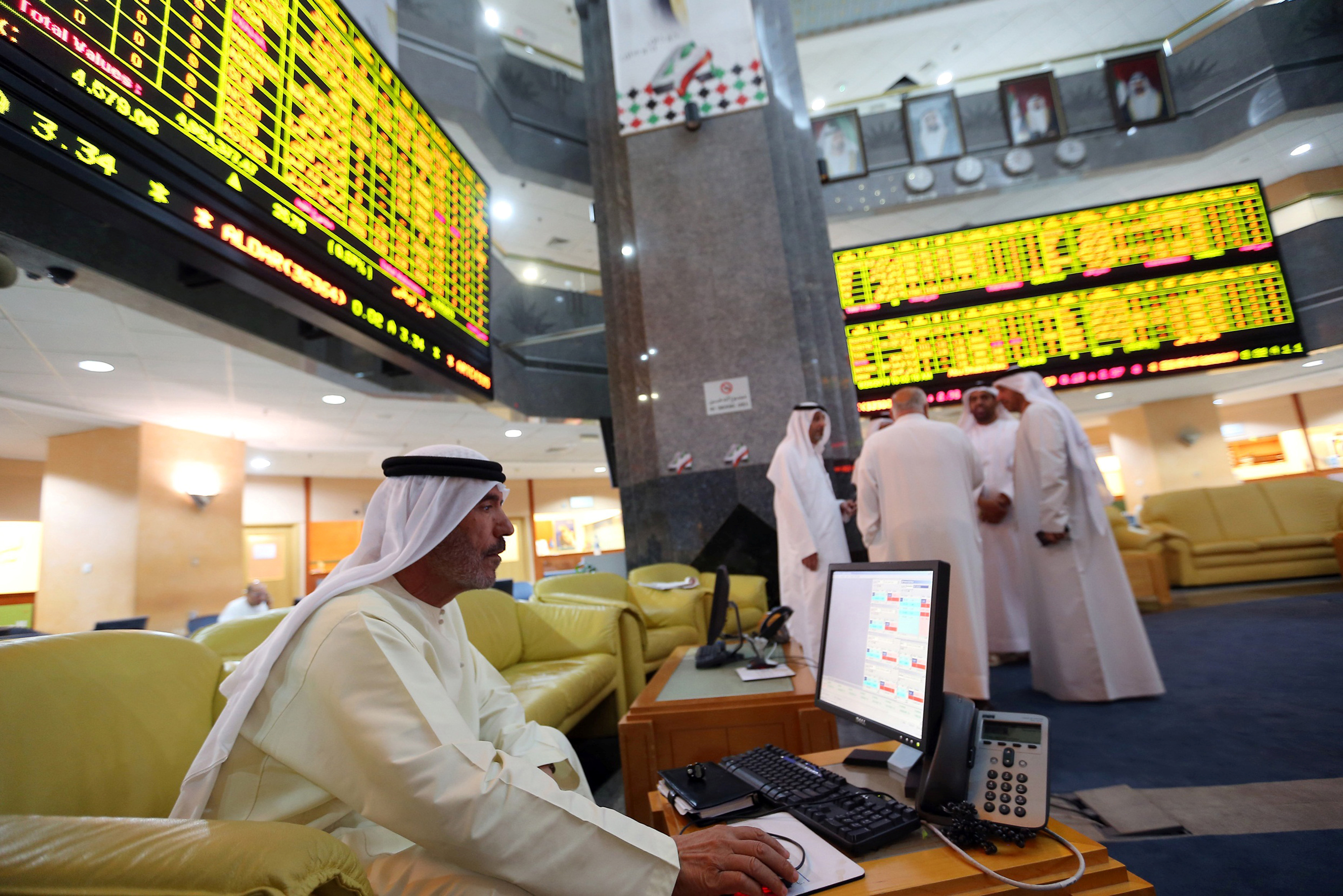Major stock markets in the Gulf turned negative on Wednesday, amid volatile oil prices and concerns around global economic growth, with the Dubai index snapping four sessions of gains.
Dubai's main share index (<.DFMGI>) fell 0.6%, hit by a 1.9% fall in top lender Emirates NBD (<ENBD.DU>), while Dubai Electricity and Water Authority (<DEWAA.DU>) closed 2% lower as the utility firm traded ex-dividend.
The Dubai bourse was volatile as concerns about a global recession continued to weigh on traders' expectations, said Daniel Takieddine, CEO MENA BDSwiss.
"The market could see some price corrections if traders move to secure their gains."
In Abu Dhabi, the index (<.FTFADGI>) lost 0.2%, with telecoms firm e& (<ETISALAT.AD>) falling 0.6%.
Saudi Arabia's benchmark index (<.TASI>) eased 0.1%, hit by a 2.2% fall in Alinma Bank (<1150.SE>).
Oil prices, a key catalyst for the Gulf's financial markets, rose as bullish signals like falling U.S. crude stocks in a generally tight market offset bearish factors such as uncertain Chinese demand, lower gas prices and U.S. stocks releases.
In the previous session, Brent fell by 1.7% and WTI by 3.1% to their lowest in two weeks on reports that U.S. President Joe Biden planned to release more barrels from the Strategic Petroleum Reserve (SPR). Separately, Saudi Crown Prince Mohammed bin Salman on Tuesday launched the National Industrial Strategy, which aims to increase the value of industrial exports to 557 billion riyals by 2030 ($148 billion), state news agency SPA reported.











